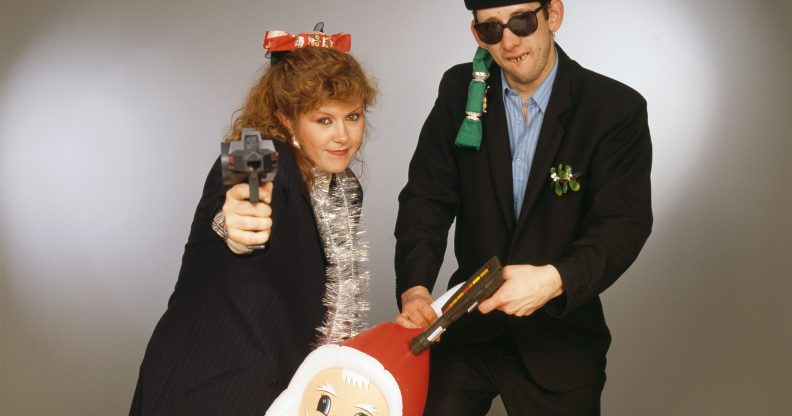BBC forced to defend decision to censor homophobic slurs after complaints about Fairytale of New York

Kirsty MacColl and Shane MacGowan originally sang ‘Fairytale of New York’. (Tim Roney/Getty Images)
After BBC Radio 1 began playing an edited version of “Fairytale of New York”, the corporation has been forced to defend itself from complaints.
The annual discourse around “Fairytale of New York” and its homophobic lyrics were jump-started early this year when the BBC announced it would air an alternate version of the song without the slur “faggot” on Radio 1 to avoid offending listeners.
The move provoked outrage from the usual suspects, forcing the BBC to issue a second statement on the matter.
“We know Fairytale of New York is considered a Christmas classic and we will continue to play it this year on BBC Radio, with our stations choosing the version of the song most relevant for their audience,” a spokesperson said Sunday (29 November), according to Metro.
“We are aware that young audiences are particularly sensitive to derogatory terms for gender and sexuality, and after considering this carefully, Radio 1 has decided to play a version featuring Kirsty MacColl singing alternative lyrics, provided by the record label.”
Although Radio 1 is playing an edited version of the song, homophobes can still hear the original in all its glory on Radio 2. BBC Radio 6 Music has given its DJs discretion over which version they play.
BBC criticised by MPs over ‘Fairytale of New York’.
After the BBC announced its decision to play an alternate “Fairytale of New York”, a group of at least 25 Tory MPs launched a bitter attack on the broadcaster.
In a letter to pride minister Boris Johnson, MPs from the hardline conservative Common Sense Group urged him to respond to the “BBC’s repeated refusal to address its organisation’s undoubted liberal bias, illustrated most recently by its bizarre decision to censor a well-known Christmas song”, by decriminalising evasion of the license fee.
The Pogues’ frontman Shane MacGowan called the BBC’s decision “ridiculous”, having repeatedly defended the use of faggot in the past as in keeping with the character sung by Kirsty MacColl.
MacColl herself would often sing alternative lyrics in live shows.

